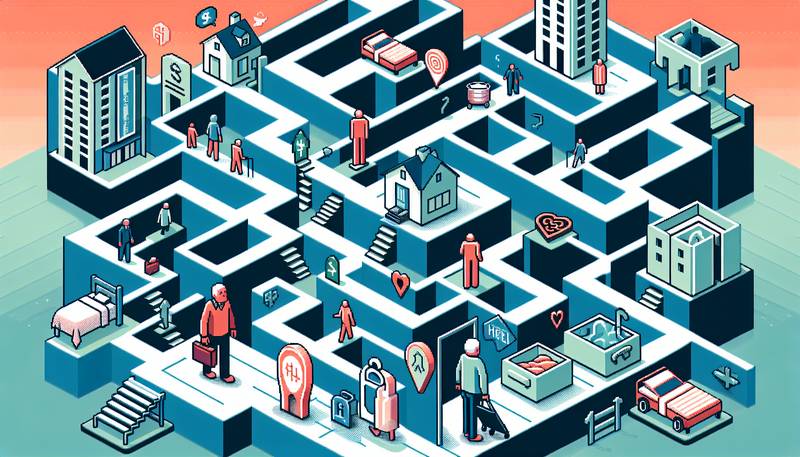Reverse Mortgage Trends: Implications for the Hotel Industry

When Retirement Meets HospitalityNavigating the realm of reverse mortgages is a bit like trying to fold a fitted sheet—frustrating, yet oddly essential. As more retirees consider tapping into their home equity for financial relief, the implications for the hotel industry are more than just a passing thought; they’re practically knocking on the door with a room key in hand. The demand for travel and leisure is increasingly influenced by the ability to leverage home value, and hotels are getting creative to catch this rising wave.Home Sweet Home EquityMany seniors are realizing that their home’s value is like that hidden chocolate stash they’ve been hoarding—worth a lot more than they initially thought. Reverse mortgages allow retirees to convert part of their home equity into cash while still living there. Instead of holding on to their home like a favorite childhood toy, retirees are opting for adventures that don’t come with a side of lawn care.This newfound financial freedom can steer retirees toward more frequent hotel stays, road trips, and vacations that were once deemed luxurious or unattainable. Suddenly, travel brochures are no longer a source of envy but a blueprint of possibilities.Changing Guest DemographicsWith this shift in finance comes a transformation in the guest demographic in hotels. Senior travelers are not just looking for a comfy bed; they’re seeking experiences that make them feel alive, youthful, and perhaps a tad more adventurous than they’ve ever been before. The hotel industry is catching on—think less “seaside retirement home” and more “party like you’re 70.” - Embracing accessible luxury- Crafting wellness retreats- Offering curated experiences tailored for the discerning senior travelerAll of this means that hotel marketing strategies are evolving faster than you can say “early bird special.”Hospitality Meets FinanceThe connection between reverse mortgages and the hotel industry isn’t just a happy coincidence; it’s a full-blown partnership waiting to happen. With many seniors holding significant equity in their homes, hotels have the opportunity to cater to this demographic in novel ways. Picture exclusive senior getaway packages complete with discounts reminiscent of those “Friends and Family” deals that only your best pal’s cousin gets. In addition to that, hotels could introduce financial literacy sessions on-site or partner with financial advisors who specialize in reverse mortgages. Not only would this build trust with a demographic that values security, but it also gives seniors the chance to ask all their burning questions while enjoying a complimentary mimosa.Location, Location, LocationAs retirees increasingly see travel as a priority, cities that cater to senior-friendly activities will find themselves in a sweet spot. This means hotels in areas known for their culture, leisure activities, and ease of access will flourish. Segments of the travel industry, such as wellness tourism or cultural excursions, can capitalize on this trend by offering unique experiences that resonate with older travelers. Hotel brands may start scouting prime locations like historic towns, art hubs, or wellness retreats, knowing that retirees are on the lookout for their next great adventure. The marketing messages are likely to be less “Youth is a state of mind” and more “Adventures at any age!”A Recipe for SuccessHotels looking to tap into the senior market could benefit from a little recipe for success, one with just a pinch of creativity and a sprinkle of understanding. ★ Comfortable accommodations: Nice beds, good bathrooms—nobody wants to wrestle with a shower curtain at their age.★ Flexible booking options: Because planners and spontaneity should both feel at home.★ Activity partnerships: Think local tours, cooking classes, or even a little Tai Chi in the lobby. By understanding the needs and desires of this evolving demographic, hotels can position themselves as the go-to destination for every retiree seeking to live their best life.Final Thoughts: Booking a Bright FutureReverse mortgages may seem like a complicated maze, but they also open doors to exciting travel opportunities for seniors. As hotels recognize this emerging market and adapt their offerings, both industries can thrive together. After all, who wouldn’t want to turn their home equity into a ticket to adventure? It’s a win-win situation—especially if free breakfast is involved.
|
|







